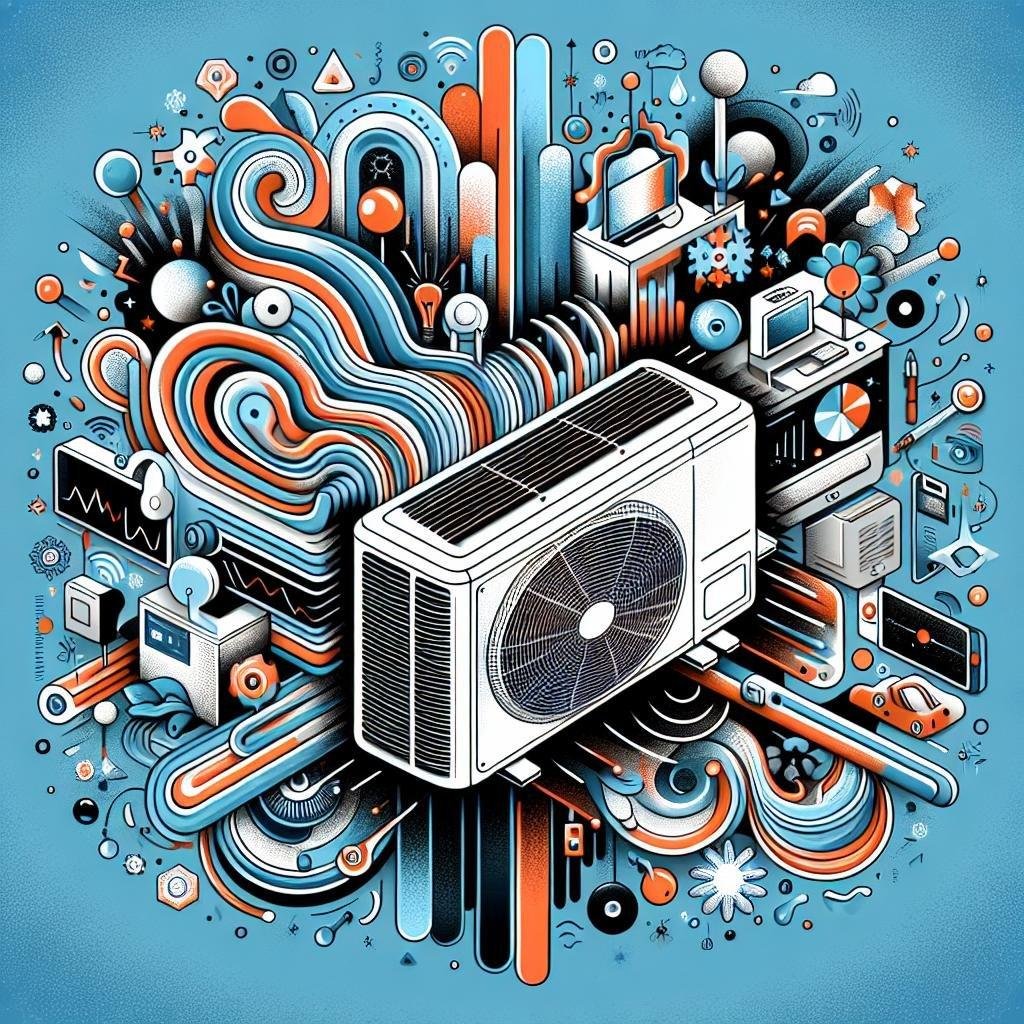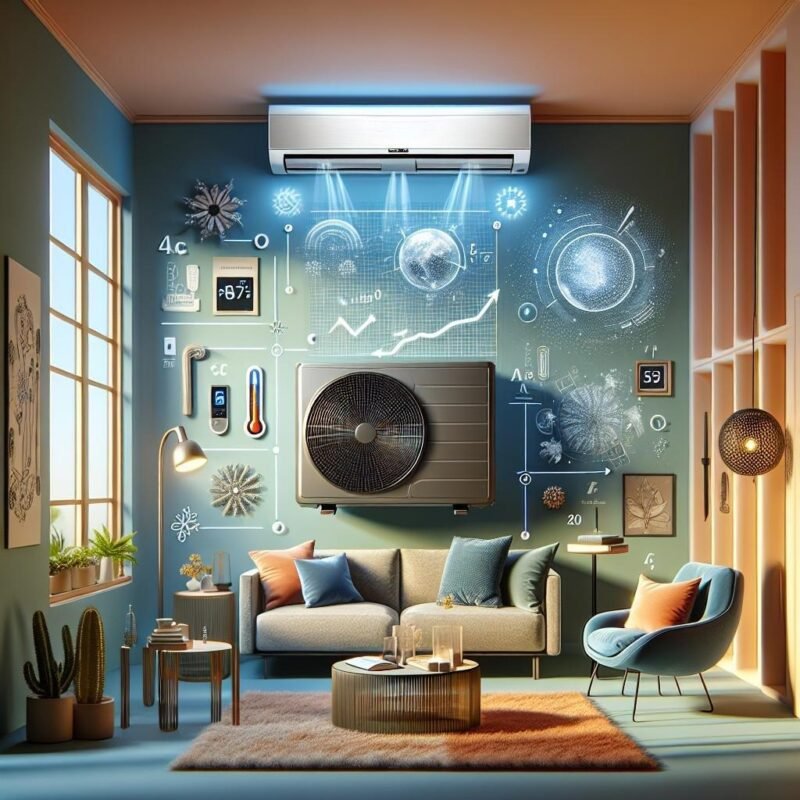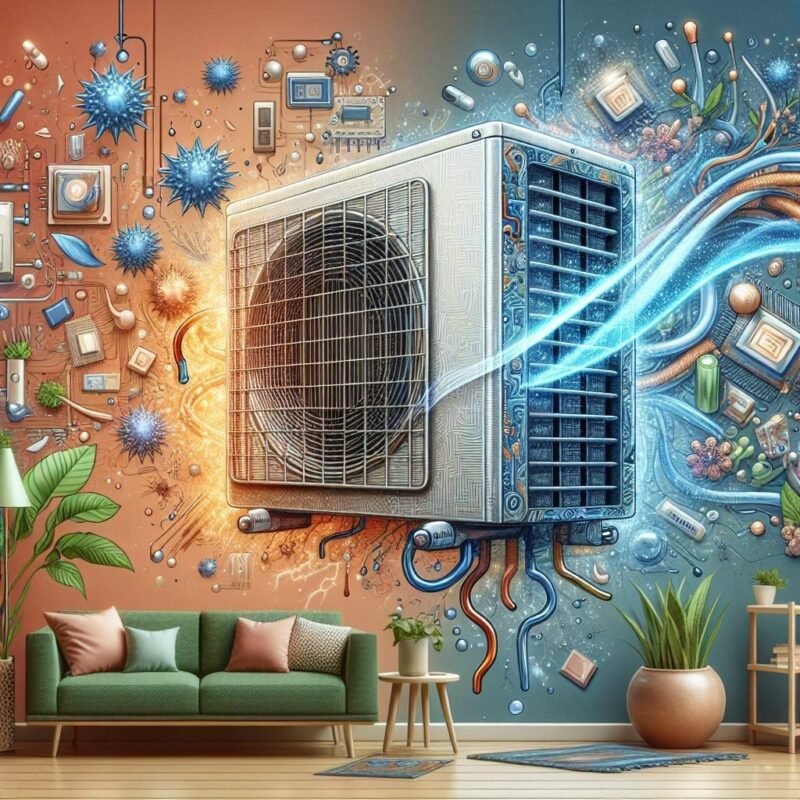Is it common for the indoor unit of a mini split AC to produce excess noise?

Picture this: You’re cozily nestled in your favorite spot, ready to dive into a good book or catch up on your favorite show, when suddenly – what’s that persistent humming? That whirring noise that seems a tad louder than usual? If you’re one of the many homeowners who’ve invested in a mini split AC system, you might have found yourself wondering weather those unexpected sounds are just par for the course or a sign of something amiss. Let’s unmask the mystery behind those peculiar noises your indoor unit might be making and discover what’s normal and what’s not in the world of mini split acoustics.
The Truth Behind Those Mysterious Mini Split Noises: Normal or Not?
Ever noticed those peculiar sounds coming from your mini split system? From gentle whooshes to unexpected clicks, these noises often leave homeowners scratching their heads. While some sounds are perfectly normal operational indicators, others might be waving red flags that deserve attention. Mini splits typically produce these common sounds:
- Swooshing or whistling – Refrigerant flowing through the lines
- Clicking or ticking – Normal expansion and contraction of parts
- Light humming – Fan motor operation
- Gurgling – Condensate drainage system at work
However, when your indoor unit starts producing unusually loud or unfamiliar sounds, it’s time to investigate. High-pitched squealing, grinding noises, or excessive rattling aren’t part of normal operation and could indicate underlying issues like loose components, failing motors, or refrigerant problems. The key is learning to distinguish between routine operational sounds and potentially problematic ones. Pay special attention to any sudden changes in noise levels or new sounds that weren’t present before.
| sound Type | concern Level | Action Needed |
|---|---|---|
| Light Clicking | Low | Monitor |
| Grinding | High | Call Tech |
| Buzzing | Medium | Inspect |
Understanding Your Indoor Unit’s Symphony: From gentle Hums to Troubling Rattles
Your mini split’s indoor unit is like a musical instrument, each sound telling its own story about the system’s performance. The gentle whisper of air flowing through the vents creates a peaceful backdrop,while the soft hum of the fan motor orchestrates a comfortable indoor environment. however, just as a symphony can hit a wrong note, your indoor unit might sometimes produce unexpected sounds that deserve attention.
Let’s explore the common sounds your indoor unit might produce and what they mean:
- Whooshing Sound: The natural sound of air circulation through the unit
- Clicking Noises: Normal startup and shutdown sequences
- Gurgling Sounds: refrigerant flowing through the lines
- Buzzing or Rattling: Potential loose components that need attention
- Metal Expansion: Natural sounds as components heat up or cool down
| Sound Type | Concern Level | Action Required |
|---|---|---|
| Soft Hum | Normal | None |
| Rattling | Medium | Inspection |
| Grinding | High | Service Call |
Quick Fixes and DIY Solutions to Tame Your Noisy mini Split Beast
Found your indoor mini split unit channeling its inner rock band? Before calling in the pros, try some nifty DIY tricks that might just restore peace to your living space. Start by giving your unit a thorough inspection - sometimes the solution is as simple as tightening a few loose screws or removing debris that’s causing the racket. Clean those filters religiously (yes, we mean at least monthly) and ensure the mounting bracket isn’t playing hide and seek with the wall.
Get handy with these tried-and-true noise-busting techniques:
- Place rubber padding or vibration dampeners under mounting brackets
- Check and adjust the fan blades if they’re hitting the casing
- Use foam insulation tape around rattling components
- Level your unit using a bubble level – even slight tilts can cause noise
- Clear any debris from the drain pan that might be causing water sounds
| Noise Type | Quick Fix |
|---|---|
| Rattling | Tighten screws |
| Buzzing | Check fan alignment |
| Whistling | Seal air gaps |
When to Call the Pros: Red Flags That Signal Serious Sound Issues
When your mini split starts exhibiting unusual sounds that persist beyond the typical operational noises, it’s crucial to recognize the warning signs. Watch out for grinding or metal-on-metal sounds, which could indicate failing bearings or motor issues. Similarly, loud vibrations that seem to intensify over time might point to loose components or mounting problems that require professional attention.
Beyond the obvious mechanical sounds, here are key indicators that it’s time to contact an HVAC specialist:
- Whistling or screeching noises that occur suddenly
- Persistent clicking sounds that don’t stop after startup
- Rattling that continues even after checking for loose parts
- Any unusual sound accompanied by decreased cooling performance
| Sound Type | Potential Risk Level |
|---|---|
| Grinding | High |
| Screeching | Urgent |
| Constant Clicking | Moderate |
Q&A
Q&A: Navigating Noise with Mini Split AC Units
Q: Is it common for the indoor unit of a mini split AC to produce excess noise?
A: Great question! Mini split ACs are often touted for their quiet operation compared to customary systems, but like any machinery, they can produce some noises. It’s not uncommon for indoor units to hum, whir, or even emit a soft gurgling sound-especially when they’re first starting up. Think of it as your AC’s way of saying, “Hey there, I’m working hard to keep you cool!”
Q: What types of noises should I expect from my mini split AC?
A: Well, you might hear a variety of sounds. A gentle breeze is normal as air circulates through the unit. You may also notice a soft clicking noise when the unit switches on and off-this can be the thermostat doing its job. If you hear a loud grinding or rattling, however, it might be time to take a closer look!
Q: When does noise become a problem?
A: If you notice unusual or disruptive sounds-like banging, clanking, or high-pitched whistling-it’s time to investigate. These could indicate a misaligned part or something more serious that needs attention.Just like with your car, if something sounds off, it’s best to check it out before it becomes a bigger issue.
Q: how can I reduce noise from my mini split AC?
A: A few tips can go a long way! Ensure your unit is properly installed; an uneven mount can create unnecessary vibrations. Regular maintenance is key too-cleaning the filters and ensuring the outdoor unit is clear of debris can definitely help. And if your mini split is getting a bit older, consider checking with a professional-you never know, it might just need a little TLC.
Q: can environmental factors affect the noise level of my AC?
A: Absolutely! External factors like wind, rain, or surrounding construction can amplify the sounds coming from your AC. If you live in a bustling area, those urban noises can mask your mini split’s gentle hum, making it seem louder than it is. Think of it as your AC’s way of competing against the world!
Q: Should I worry about noise affecting my energy bill?
A: Not necessarily! A little noise doesn’t usually mean your unit is guzzling energy. Though, if your AC is laboring harder due to a mechanical issue, it could lead to inefficiencies and higher bills. Keep your ears open; they can be just as critically important as your eyes when it comes to spotting potential problems!
Q: When in doubt, should I call a professional?
A: Yes, indeed! If your instincts tell you something isn’t right-don’t hesitate to reach out to a professional. They can diagnose the issue and give you peace of mind. After all, the goal is to keep you cool and comfortable-minus the extra noise!
Keep your questions coming, and enjoy that refreshing cool air! 🌬️
Final Thoughts
As we wrap up this exploration into the world of mini split AC systems and their sometimes-noisy indoor units, it’s clear that while a little hum is perfectly normal, excessive noise is a call for attention. Just like any good freind,your AC has its quirks,and understanding them can ensure a more harmonious relationship. Regular maintenance, proper installation, and knowing when to call in the pros can help you keep your space cool and quiet. So, the next time you hear a buzz or clatter, don’t panic - instead, consider it a chatty companion reminding you it’s there to keep your indoor oasis comfortable. Here’s to many cool, peaceful days ahead! Stay chill!






















